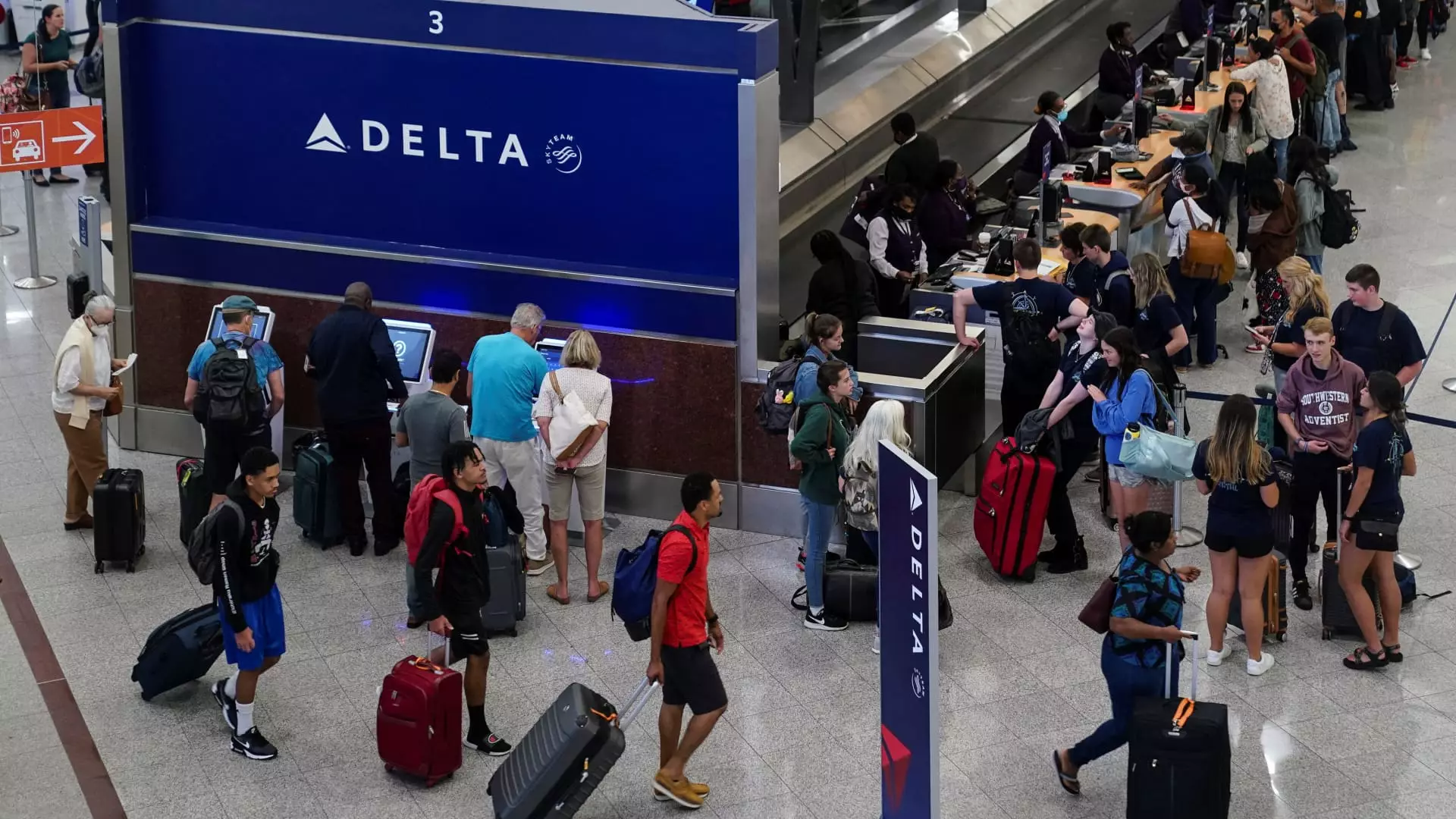In a recent announcement, Delta Air Lines expressed optimism regarding its financial trajectory, anticipating revenue growth during the year 2025. This outlook is grounded in a perceived “resilient economy,” which Delta believes is fueling robust demand for travel and increased consumer spending, particularly through credit cards. As the airline industry rebounds, Delta is projecting moderate revenue increases in the mid-single-digit percentage range for 2025, aligning closely with analyst forecasts that hover around 6%. This growth expectation embodies a profound optimism that Delta embodies regarding economic recovery and consumer behavior patterns.
Despite this positive forecast, Delta has also signaled an awareness of the financial headwinds it faces. The airline anticipates a rise in operational costs, projected to escalate in the low single digits, excluding fuel expenses. Such cost predictions show Delta’s strategic plan to remain competitive while navigating the challenges inherent in an evolving economic landscape. The airline’s intent to ramp up its flight operations by 3% to 4% relative to 2024 reflects a canny response to recovering passenger demand, positioning itself ahead of potential market shifts.
One key aspect of Delta’s strategy is its dedication to catering to high-spending travelers. The airline has forged a significant partnership with American Express, which is expected to yield $7 billion in revenue this year alone—part of a larger aim to secure $10 billion in the long run. This relationship highlights Delta’s strategic pivot towards capturing affluent clientele, capitalizing on a growing trend of luxury travel preferences among consumers.
The pandemic has catalyzed a seismic shift in traveler demographics, leading to a surge in disposable income and an increase in demand for premium seating. Notably, Delta has reported that a mere 43% of its revenue this year stems from main cabin tickets, with 57% sourced from premium seats and its profitable loyalty program. This imbalance illustrates Delta’s successful transition to a revenue model heavily reliant on higher-paying patrons, positioning itself as not just a transportation provider but also as a luxury service facilitator.
Insightfully, Delta’s upbeat assessment stands in stark contrast to the narratives emerging from other retail sectors. For instance, major retailers like Target have recently revised profit expectations downward, attributing this shift to decreasing discretionary spending. Such disparate views on consumer spending can alter the playing field within the airline industry, with Delta focusing on upscale markets as a potential buffer against these broader economic challenges.
In terms of competition, Delta finds itself in a tight race with rivals like United Airlines, who have also begun to enhance their offerings to attract high-end travelers. Despite this rivalry, Delta’s stock performance outpaces many competitors—with shares up around 60% so far this year, illustrating widespread investor confidence. In comparison, United Airlines boasts an impressive 128% increase over the same period, indicating a fierce competition among major carriers as they seek to capture lucrative market segments.
The trend towards premium ticketing is emblematic of a larger shift within the airline industry. Delta’s president, Glen Hauenstein, revealed that over the past 15 years, the percentage of domestic first-class seats that are purchased has ballooned from a mere 12% to more than 70%. This transformation underscores a significant change in customer behavior and expectations regarding air travel, positioning Delta to innovate further within its cabin offerings.
Looking forward, Delta appears focused on exploring new segmentation strategies within its cabins, reflecting a desire to enhance the travel experience across different classes. The introduction of premium economy options and several tiered seating arrangements demonstrates Delta’s commitment to catering to a diverse range of customer needs.
Delta Air Lines is robustly positioning itself for future growth by leveraging strong economic indicators and a discerning customer base eager for premium travel experiences. As it continues to adapt and innovate, its focus on quality offerings seems likely to sustain, allowing the airline to maintain its competitive edge in an ever-evolving marketplace.

